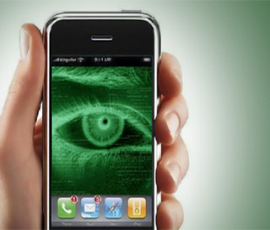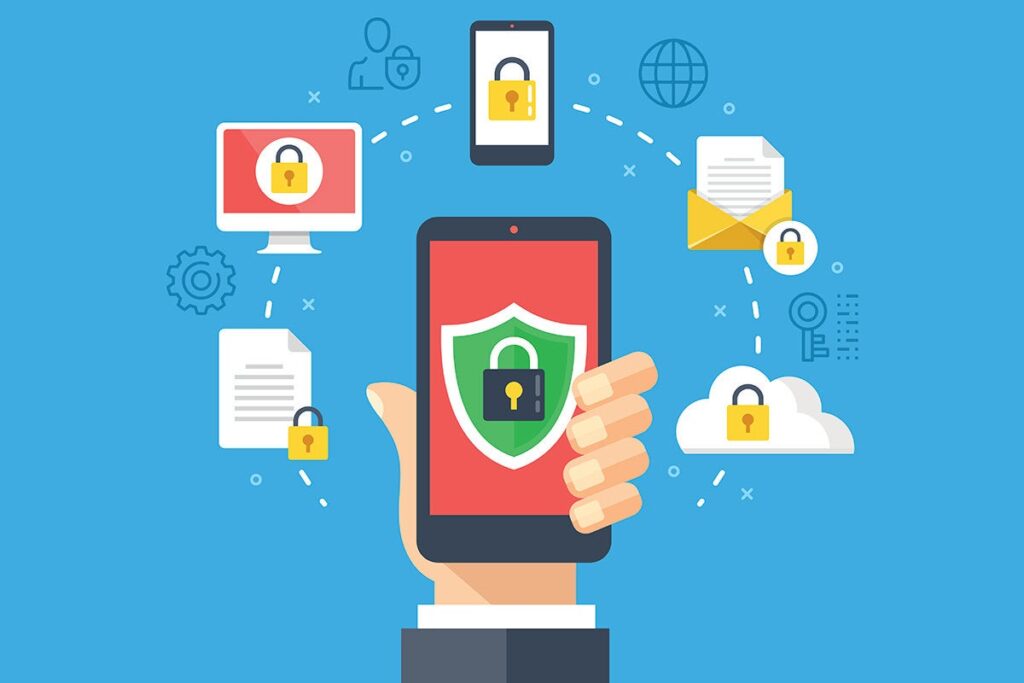
Believe it or not, your Smartphone device can be blessing and a curse at the same time. You can use it to find nearby fast food restaurants – for when you are running on an empty stomach, or perhaps connect with loved ones while far away from home. In a nutshell, these devices can – to some extend – function as diminutive computers. Despondently, just like all other handy devices, smart phones are also prone to thievery and loss. Accordingly, if your device is lost or stolen, you can be certain that your data would be accessed and may be used to conduct fraud. Information such as online banking credentials, confidential contacts, location history, and other sensitive information that can critically compromise your identity should be sufficiently guarded. The following steps outline some basic steps you can take to secure your privacy on your portable devices.
Lockdown your mobile device
Although, this step sounds straightforward and is simple to implement, you may be surprised how many folks simply don’t lock their phones for their own convenience. Automatic screen locks on most popular smart mobile phones are a basic feature, and it takes less than five minutes to setup a four digit pass code or an unlock pattern.

Use phone tracking software
There are plenty of free device tracking applications available for all major operating platforms. All it takes is a little bit of effort to download and install one of these apps, and then you can start tracking your gadget. Additionally, most apps also give you the option to remotely delete your confidential data – in case your phone is lost or stolen – giving you complete assurance on the security of your data.
Never leave your mobile phone unattended
Would you ever think of leaving your social security card in a public place? Surely, it would be a foolish mistake on your end. Therefore, why is it then that we tend to leave our phones unattended, be it at the bar, at the restaurant or at the workplace? Keep in mind that your smart mobile phone could contain data such as your residential address, social security number, driver’s license and passport related facts, without you even knowing about it – as we have a tendency to save receptive information and then forget about it.
Encrypt the Data on your phone
Most smart mobile phones are already equipped with an integrated data security feature such as data encryption. Use this free built in protective measure to safeguard your privacy. Moreover, there are also many other, more comprehensive data security applications such as Folder Lock which you can download on your smart device.
Ways To Protect Your Privacy On Smartphone
1. Use strong passwords and two-factor authentication: Use strong passwords and two-factor authentication to protect your device and accounts.
2. Keep your software and apps up to date: Regularly update the software and apps on your device to ensure that the latest security patches are applied.
3. Use encryption: Encrypt the data on your device, including any stored passwords and financial information.
4. Enable remote wiping: Enable remote wiping so that if your device
is lost or stolen, you can erase all the data on it.
5. Use a secure Wi-Fi connection: Connect to secure Wi-Fi networks whenever possible, and avoid using public or unsecured networks.
6. Use a mobile security app: Install a mobile security app to protect your device from malware and other threats.
7. Be wary of suspicious links and downloads: Avoid clicking on suspicious links or downloading unknown files, as these can contain malicious software.
8. Use a secure lock screen: Use a lock screen that requires a PIN, pattern, or password to access your phone.
Importance Of Smartphone Privacy
Smartphone privacy is important because it helps protect our personal information from being accessed by unauthorized individuals. It is important to protect our data from being accessed, hacked, and used without our permission. Smartphone privacy also helps us to protect our private conversations, photos, and documents from being seen by others. Additionally, it helps us to protect our financial information and passwords from being stolen.
Risks Of Smartphone
The risks of smartphones include data breaches, malware, phishing attacks, unauthorized access, and identity theft. Smartphones are highly vulnerable to these types of attacks because they are portable and easily accessible. Data breaches can lead to the loss of sensitive information, such as passwords and financial records. Malware can be used to gain access to a user’s device and can be used to steal data or spy on a user. Phishing attacks can be used to trick users into revealing their passwords or other sensitive data.
Do Smartphones Have Privacy?
Yes, smartphones do have privacy. Smartphones are equipped with various security features to help protect data and user privacy. These features include encryption, two-factor authentication, biometric security, and app permissions. Additionally, users can take steps to further protect their data, such as setting up a secure lock screen, using a VPN, and avoiding public Wi-Fi networks.
Why Using Phone Is Harmful?
Using a phone can be harmful in a variety of ways. Excessive phone use can lead to physical health issues such as neck and shoulder pain, eye strain, and headaches. Additionally, too much time spent on the phone can lead to mental health issues such as depression, anxiety, and distraction. Furthermore, using a phone can be distracting and lead to decreased productivity.
Disadvantages Of Mobile
1. Radiation exposure: Mobile phones emit radiation, which can be harmful to your health.
2. Distraction: Mobile phones can be a distraction from daily tasks and activities.
3. Security risks: Mobile phones can be vulnerable to security risks such as hacking and data theft.
4. Expense: Mobile phones can be expensive to maintain and upgrade.
5. Social issues: Excessive use of mobile phones can lead to social issues such as isolation and decreased face-to-
face communication.
What Is Privacy In Mobile Phone?
Privacy on mobile phones is the ability of an individual to control who has access to the data and information stored on their device, and how it is used. This includes things like preventing unauthorized access to personal information, controlling who can access certain features, and setting limits on who can view or use certain applications.
Principles Of Security
The four principles of security are confidentiality, integrity, availability, and authentication. Confidentiality ensures that data is only accessible to authorized users. Integrity ensures that data is not changed without authorization. Availability ensures that data is accessible when needed. Authentication ensures that users are who they claim to be. Additionally, security goals may also include non-repudiation, which ensures that users cannot deny or repudiate a transaction, and auditing, which ensures that activities are tracked and monitored.
Why Are Privacy Settings Important?
Privacy settings are important because they allow users to control who can access their data and how it is used. Privacy settings allow users to limit access to their data and to control who can view, use, and share it. They also help protect users’ data from unauthorized access and misuse. Privacy settings are essential for protecting users’ data and preserving their privacy.
